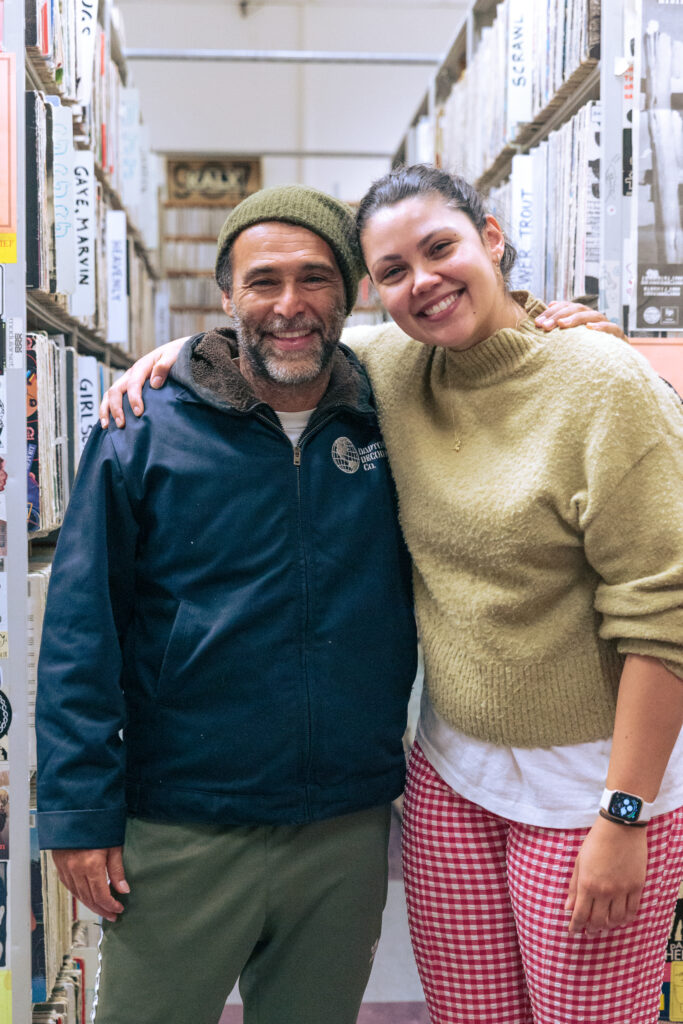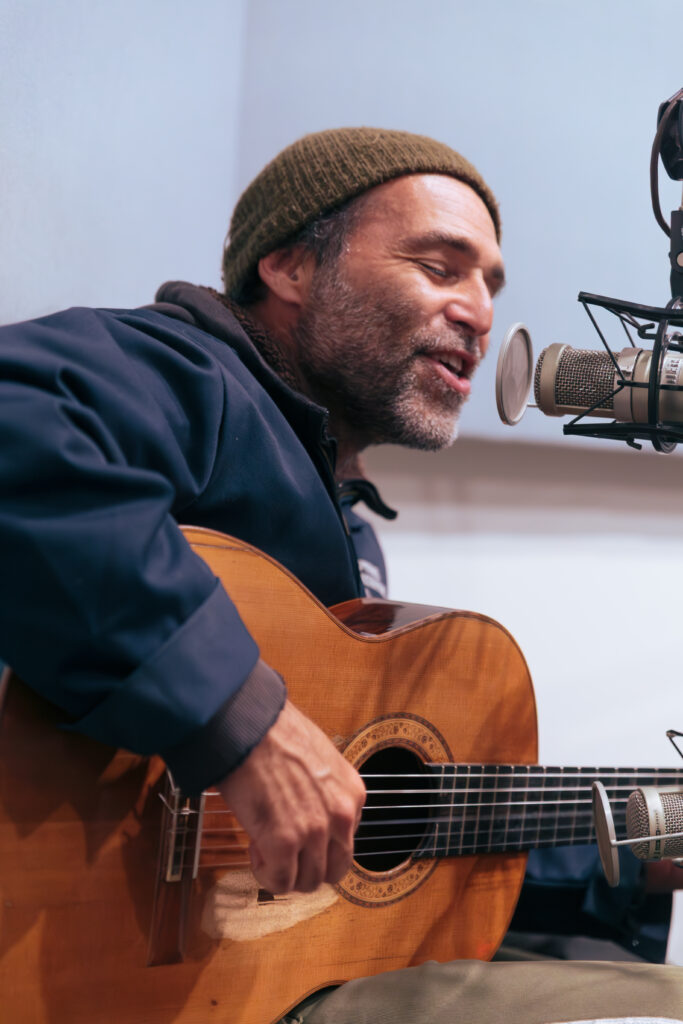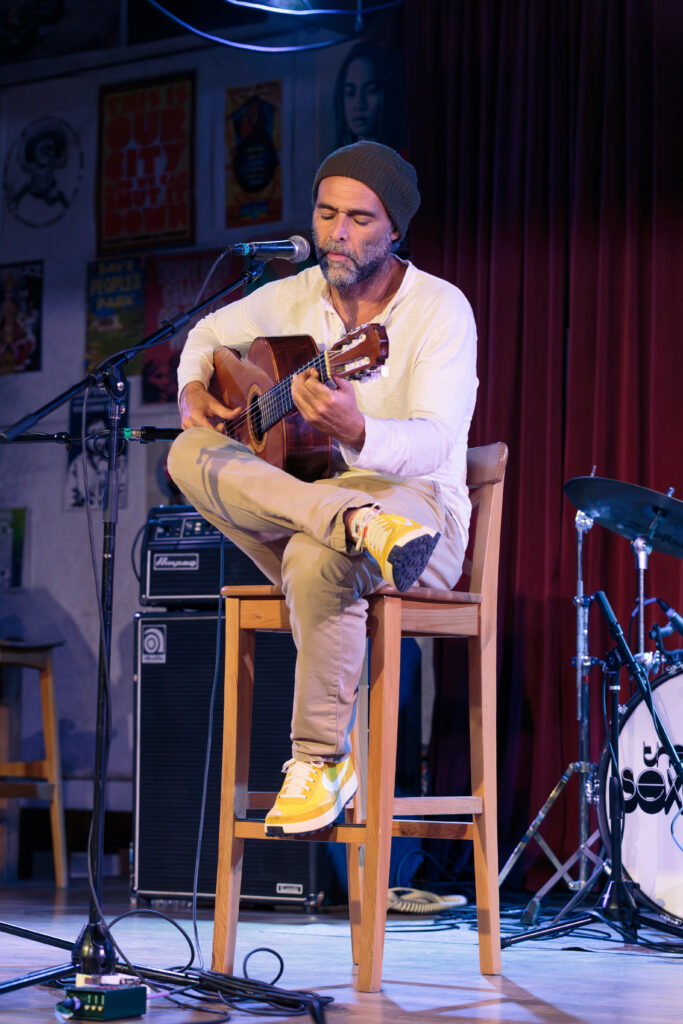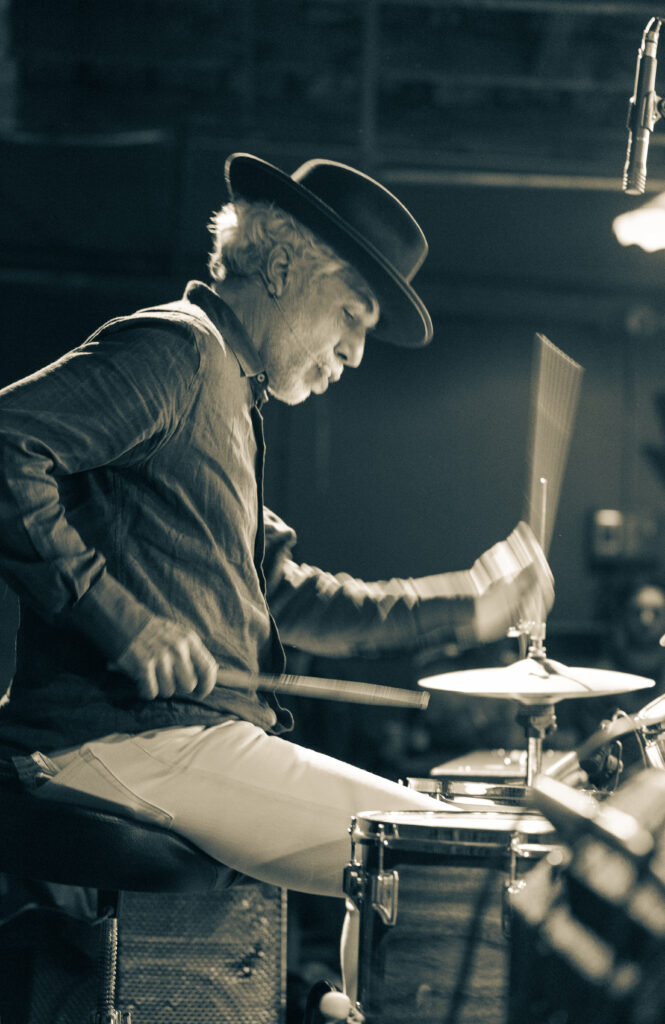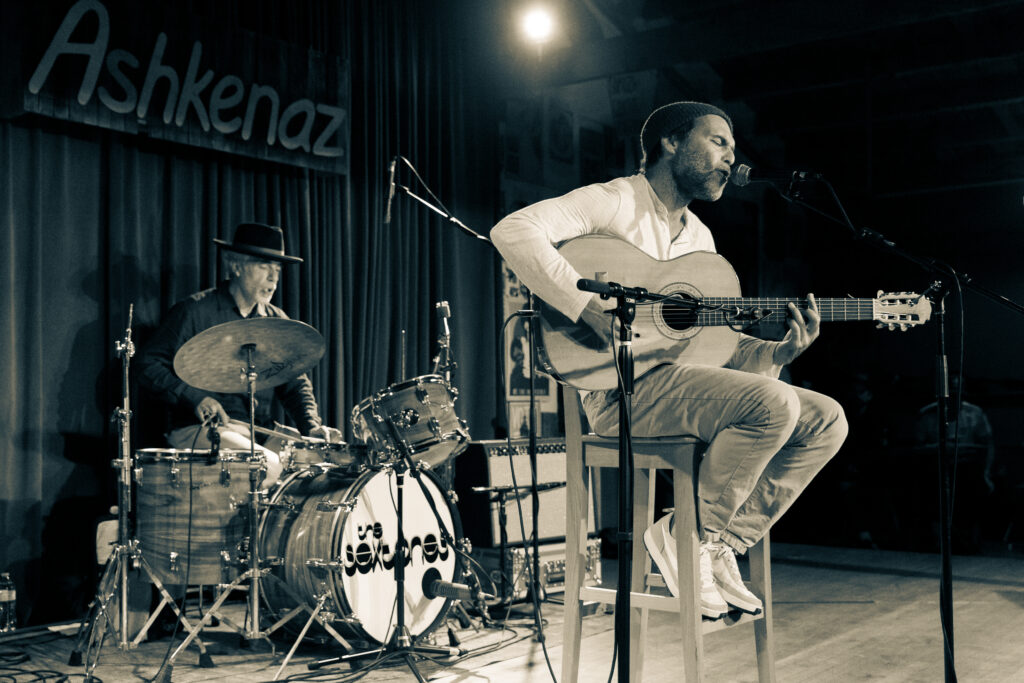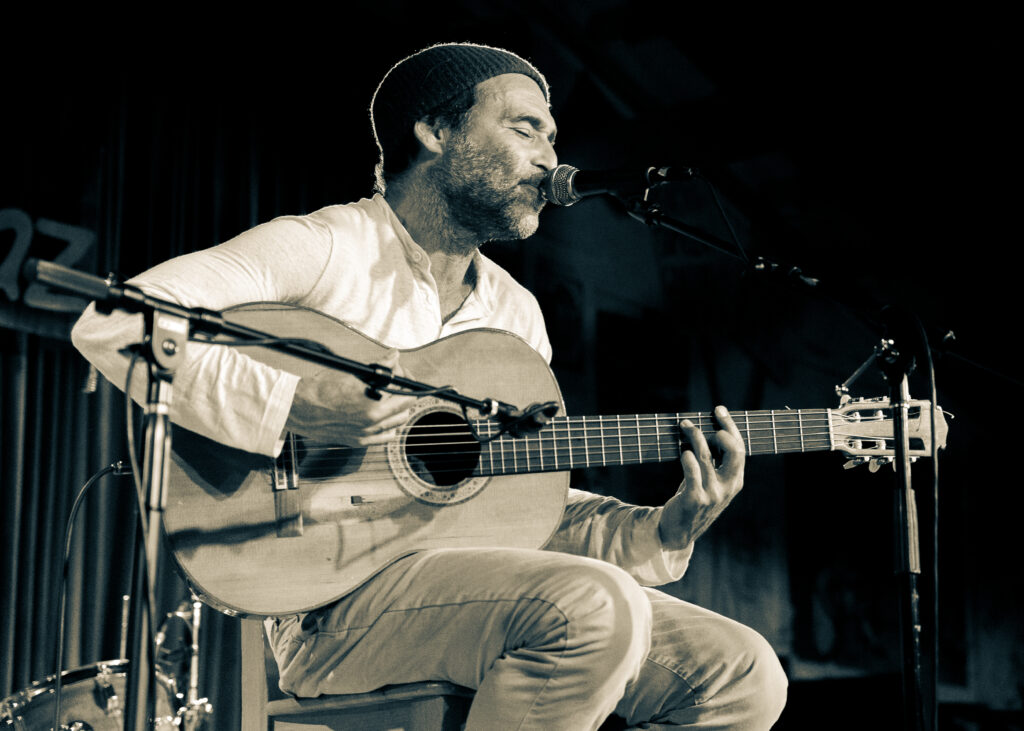Rogê came to Ashkenaz in Berkeley, on Saturday, February 22nd, the first stop in his tour to promote his latest album Curyman II. The record was released by Diamond West records and produced by Thomas Brenneck of Menahan Street band — a band I’ve admired for several years.
I was lucky to meet Rogê earlier in the day at the KALX station, greeted by a warm hug and introduced by DJ Good Juju before she interviewed him on the air. I was excited to see Rogê bring a guitar and was instantly overtaken with joy when soundcheck began — his delicate guitar play and playful yet smooth singing fed into my love for Brazilian culture. Rogê had a cool positive charisma, despite waking at 5am to make the drive up from Los Angeles. As Good Juju interviewed Rogê she warmly led the conversation to fascinating topics. Rogê shared his gratitude for choosing the path of being a musician, loving to compose music, navigating being the first musician in his family, balancing roots vs creating anew, and choosing to live in LA, for its thriving music scene and because, as he put it, he is a “tropical man.” Throughout the interview, he spontaneously picked songs to play with a beautiful range of vibes, from serene to highly energetic. As we explored about the library after the interview, Rogê showed a deep reverence for the vinyl from Gregory Isaacs, Baden Powell, and Fela Kuti— it was clear he would happily spend hours there, if he didn’t have to head over to sound check at Ashkenaz.
Fast forward a few hours and Rogê took the stage at Ashkenaz with an acoustic guitar and his long time friend Stephane San Juan on the drums. Before playing, Rogê told the audience he didn’t have a setlist, setting the stage for a natural flowing energy. Rogê started the show with fiery guitar playing and intricate fingerpicking, building intensely into a passionate rhythmic crescendo. As Stephane played a high energy drum solo, rooted in Brazilian rhythms, it didn’t take long for the dance floor to fill up and stay that way for the rest of the night. Rogê’s singing was both laid back and playfully expressive — keeping the dance floor grooving, with moments of scatting, and bringing the vibrant audience to sing along.
I was in bliss when he played “O Topo Do Coqueiro” — a lively, uplifting song, matched with sweet lyrics about climbing to the top of the coconut tree, excited to see who will arrive and enjoying the view.
“No topo do coqueiro eu vou, quero ver quem vai chegar…
E quem é de chegar, chega para somar, para viver
É bonito de ver, lá do alto do céu, eu vejo o mar
[Translated to English]
To the top of the coconut tree I go, I want to see who will arrive…
Whoever arrives, arrives to add, to live
It’s beautiful to see, from high in the sky, I see the sea”
In a way, that’s how I feel listening to Rogê — rising into the warm, high energy of samba and roots, taking in the joy, as people come together, living in the music.
Review and photos by Slava Starikov

